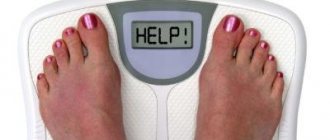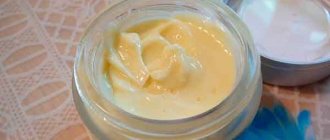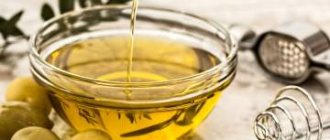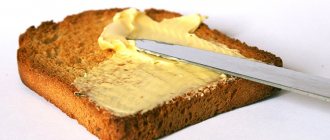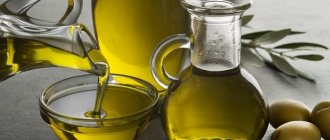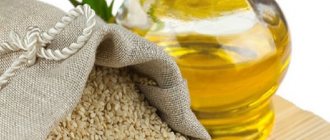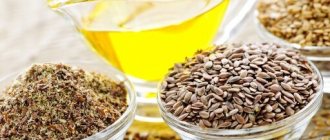Is it possible to use vegetable oil for weight loss?
Most diets that promise quick results are based on the complete exclusion of foods with high energy value from the diet. First of all, these include provisions based on fats and carbohydrates. Therefore, often, when studying a super-effective menu for weight loss, you can come across a ban on sugar, white bread and butter.
And if giving up fast carbohydrates will most likely only benefit both the body and the figure, then the absence of vegetable oil will certainly disrupt the course of natural processes. Therefore, restrictions should be treated wisely.
The effect of unrefined oil on the body can be compared to a similar situation in the operation of complex mechanisms. If there is not enough lubrication, the processes will either stop or require additional effort. Vegetable fats perform a similar function in the body. They:
- saturate;
- promote the absorption of certain vitamins;
- nourish the skin “from the inside”;
- help the production of estrogen;
- participate in metabolism;
- promote the proper functioning of internal organs;
- provide elasticity of blood vessels;
- lower the level of bad cholesterol;
- support nervous reactions.
That is, a complete refusal of oils of natural origin during the diet will make the diet less nutritious. And no more. In this case, food will become poorer by:
- vitamins A, E and F;
- mono- and polyunsaturated fatty acids;
- antioxidants.
Fatty acid composition of vegetable oils
The meagerness of such a diet will soon become noticeable not only to the person losing weight, but also to those around him. People who give up oils often complain that:
- wrinkles on the face have become more clearly defined;
- unpleasant dryness and flaking of the skin appeared;
- the thinner body “sags”;
- the menstrual cycle is disrupted;
- hair and nails become brittle;
- constipation began to bother me;
- Teenage rash has “returned”.
We recommend reading about the salad Brush for weight loss. You will learn about how the Brush salad works, salad recipes, Elena Malysheva’s diet, and its effectiveness.
And here is more information about the soup diet for weight loss.
How do vegetable fats affect the body?
The basis of any natural vegetable oil is polyunsaturated fatty acids. These substances, which play a vital role in human life, cannot be synthesized by the body on its own - they are obtained from incoming food, then converted into the required compounds.
Fats (lipids) have the following effects:
- serve as a source of energy reserves;
- are the main structural components of cell membranes;
- participate in metabolic processes;
- provide assistance in maintaining the healthy state of internal organs and systems, including the cardiovascular system;
- help produce estrogens;
- support the processes of nervous reactions;
- provide the body with polyunsaturated Omega-3 and Omega-6 fatty acids (PUFAs) that are unique in their significance.
- reduce the risk of blood clots;
- improve the elasticity of the walls of blood vessels;
- promote blood regeneration, positively affecting its composition;
- serve as a supplier of vitamins (A, D, E), assist the body in the absorption of their fat-soluble part;
- lower the level of “bad” cholesterol, preventing the development of atherosclerosis;
- promote satiety;
- are a natural antioxidant, slowing down the aging process.
The ratio of polyunsaturated fatty acids varies depending on their content in oils such as grape, sunflower, corn, olive, and other foods that should be included in your daily diet. Certain vegetable fats not only do not contribute to weight gain, but when consumed regularly, they also promote natural weight loss.
Safe dose
Such manifestations of unhealthy weight loss are unlikely to add optimism and self-confidence, especially if giving up your favorite food is difficult. Therefore, nutritionists categorically do not recommend reducing the amount of vegetable fat in the menu to zero. However, pouring it into every dish is also a wrong move. Without harm to your figure, but with health benefits, you can eat about 50 g of vegetable oil per day.
It should only be eaten fresh. That is, add to vegetable salads or ready-made soups, pastas, and cereals. It is better to avoid frying, as this will add harm to both the oil itself and the products that will be cooked in it. Valuable vitamins and antioxidants will be destroyed when heated, and acids will turn into carcinogens. In addition, all this “wealth” will be absorbed into the dish and will inevitably enter the body.
Myth 5. It is better not to mix different types of oils in dishes
Quite the opposite: you can even add different oils to the salad to get the maximum amount of nutrients. For example, flaxseed oil is a recognized leader in the content of alpha-linolenic fatty acid, one of the omega-3 fatty acids that are necessary for the prevention of cardiovascular diseases. This is the only vegetable oil in which the omega-3 content approaches fish oils. Pumpkin oil, in addition to polyunsaturated fatty acids, is rich in a wide range of carotenoids. Due to this, it is used in the production of dietary supplements, treatment and prevention of liver diseases, biliary tract diseases, and cholesterol metabolism disorders.
Hemp oil is distinguished by the fact that it contains a unique fatty acid complex, including valuable gamma-linolenic, stearidonic and arachidonic acids, which allows it to be used as a dietary supplement to food. Sesame oil, in addition to the same polyunsaturated fatty acids, contains the antioxidant sesamin, which complements the antioxidant properties of vitamin E, which helps prevent premature aging.
Therefore, it makes sense to sometimes add a teaspoon of a mixture of oils to your portion of salad, or alternate them.
Which one is better to choose?
The body cannot produce many of the substances contained in vegetable oil on its own. However, they are required to support many natural processes. Therefore, you need to receive them along with food daily and in the required amount.
Health shops and store shelves do not limit the choice of healthy oil product. Each of them has its own advantages and characteristics of taste. The only requirement is quality. Healthy oil should not be refined or contain artificial flavorings or other chemical ingredients.
Olive
Experts recommend using this type of oil more often than others when losing weight. In addition to the components traditional for vegetable fats, it has the ability to saturate faster and better than other “brothers”.
Olive oil helps control appetite and improve the production of the happiness hormone. Once in the intestines, it triggers a process that results in the release of a special substance that signals saturation. That is, when flavoring dishes with this oil, you will be able to eat a smaller portion.
To lose weight, you can drink it in the morning on an empty stomach, taking a dessert spoon half an hour before breakfast. If well tolerated - with ten drops of fresh lemon juice. You can simply add oil to prepared dishes. In terms of its taste, “liquid gold” goes best with vegetables, white fish and chicken.
Corn
This type of vegetable oil is not as popular as olive oil, but no less useful. In addition to vitamins, it contains sufficient amounts of folic acid, so it is suitable for nutrition of women who plan to become mothers. And also for girls who have an irregular menstrual cycle (due to high sports loads or a strict diet).
Corn oil is recommended for carbohydrate metabolism disorders and diabetes mellitus. Therefore, during weight loss, such a product will also have a positive effect. It has a beneficial effect on the functioning of the digestive and genitourinary systems, and also improves blood clotting and strengthens the immune system.
As a source of vegetable fat, corn oil can be added to any dish. It has a neutral taste, so it will be almost invisible against the background of other components. It can also be used at the “cooking” stage. This oil is not afraid of heat and will retain all its values even if it is poured into boiling soup.
How to use vegetable oils in food for health purposes?
Vegetable fats play a dominant role in healthy nutrition—with them, the body receives essential nutrients that are absent in animal sources.
In order for the components used to benefit the body and have a healing effect, the following rules must be taken into account:
- choose only natural, low-processed oils that have been produced using the first cold pressing method, bottled exclusively in dark glass. If possible, include such exotic ingredients in the diet as wheat germ oil, mustard oil, camelina oil, coconut oil;
- use vegetable fats, which contain the largest amount of antioxidants, for example, vitamin E. These types of products have good resistance to heat;
- It is recommended to season cooked dishes with unrefined oil, while baking or frying with a refined composition;
- For healthy nutrition, oils should not be subjected to any heat treatment - boiling, frying or baking. If this requirement is ignored, irreversible changes may occur in the composition of the product under the influence of high temperatures, as a result of which the beneficial oil will turn into a carcinogen.
Scientists have long insisted on excluding heat treatment of vegetable fat. Cold-pressed products are best consumed in their natural raw state - drink on an empty stomach in dosed order, use as a dressing for a variety of salads, sandwiches, sandwiches, and other snacks, pour into a plate with already prepared porridge or soup.
If necessary, you can add vegetable fat to the pan with food, but this should be done at the final stage of cooking, when the fire under the pan is already turned off.
General properties
Like any oil, unrefined sunflower oil is pure fat, with a calorie content of 900 kcal per 100 grams. It would seem that this is where the conversation about the combination of this product and weight loss can be considered exhausted. But in fact, the value of the product is not limited to calories.
No matter how severe the diet, it must contain a certain amount of fat. Firstly, it is fatty foods that cause contraction of the gallbladder, preventing stagnation of its contents and the formation of stones. Secondly, fatty acids are a necessary element of cell membranes, especially nervous tissue, and material for the synthesis of sex hormones. That is why any woman - if, of course, she wants to continue to remain a woman - should receive at least 40 grams of fat per day. Moreover, the fat is such that the fatty acids it contains can be used not only as a source of energy, but also as a building material.
Despite the fact that sunflower oil is extremely low in omega-3 polyunsaturated fatty acids (but there are a lot of them in flaxseed oil), which have a beneficial effect on the heart and brain, it contains essential linoleic acid. It is called essential because the human body is not capable of synthesizing this substance; it comes only with food.
At the same time, linoleic acid, along with cholesterol, is the main component of cell membranes. In addition, the body synthesizes arachidonic acid from it, one of the main components of liver tissue. Deficiency of linoleic acid can cause atopic dermatitis, especially in children: the normal properties of the skin are disrupted, which not only loses water faster, but also becomes permeable to allergens and microorganisms.
Russian standards require that a person consume 6 g of linoleic acid (15 g of sunflower oil) per day, American standards say 12 g. At the same time, sunflower oil in our realities is the most inexpensive and accessible source of it, when compared, for example, with grape seed oil seeds, safflower or cedar.
So consuming sunflower oil when losing weight is not only possible, but necessary. It is desirable that the product be unrefined, cold-pressed - in this way all the beneficial substances remain as unchanged as possible. But is it effective for losing weight?
How to take sunflower oil for weight loss in food
It's simple - the oil contains a certain amount of linoleic acid, which is not synthesized by the human body, but is very necessary for it. At least in order to maintain the health of the hormonal system, the speed of metabolic processes and reactions. In addition, oil from ordinary seeds contains vitamins A and E, and a certain amount of minerals. In general, the product is useful, but it is often used incorrectly.
If you want to lose weight, you will have to include oil in your diet in doses. 1 tablespoon (25 g) of the product contains more than 200 kcal, and splashing oil into a salad “without looking” is a sure way to overload on calories without even realizing it. Of course, there is no talk of any benefit if the oil is eaten in a “fried” form, as a “base” for frying the same low-calorie vegetables. If you want to lose weight and get healthier, use the following rules:
- Consume no more than 30% of calories from fat per day. Approximately 10% should come from animal fats, which we get, for example, from cheese and dairy products, the rest should come from vegetable oils;
- The best option for vegetable oil is cold-pressed oil, preferably first. Only it contains all the beneficial substances unchanged. “Experts” advise that in a situation where such oil cannot be purchased, add raw peeled seeds to salads, but not a refined product subsequently enriched with vitamin E;
- When cooking, stick to the total amount of oil “allowed for yourself”, and do not pour it into the salad “without looking”. Season your portion directly and leave the overall dish without adding oil. A tablespoon contains 25 g of product, usually for a woman weighing 70 kg it is allowed to consume 1.5-2 tablespoons with different vegetables, the final amount is determined depending on physical activity. Runners and supporters of weight loss with aerobics, especially if they “run” more than 300 minutes a week, should consume 10-15 g of oil per day more than those leading a passive lifestyle;
- When frying and even while cooking scrambled eggs, the oil is absorbed. If frying cannot be avoided, use a spray to spray the oil, or lubricate the pan with vegetable oil using a piece of gauze, but do not pour the product uncontrollably.

